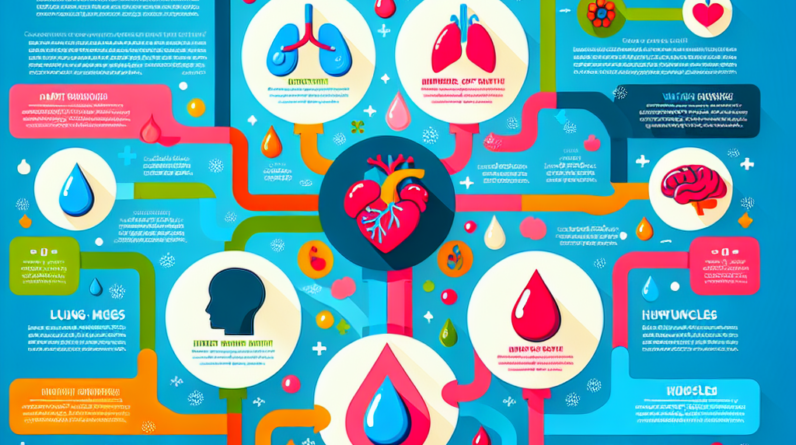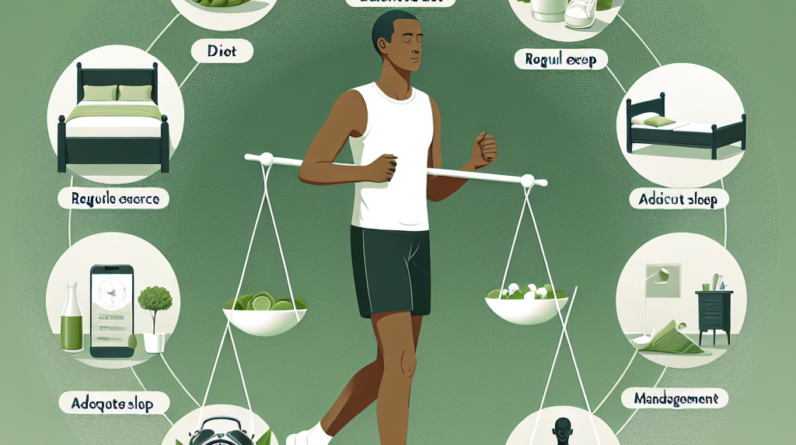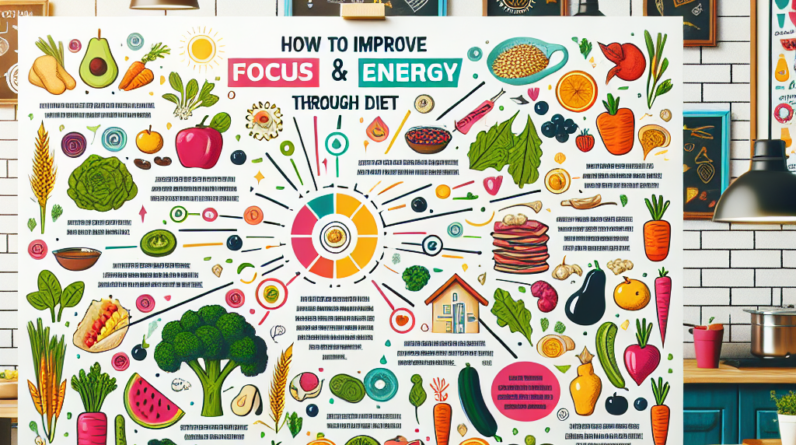
Practice Mindfulness and Meditation
Understanding Mindfulness
Mindfulness is all about being present in the moment. I remember when I first tried meditation; it felt super awkward, but that’s totally normal! The key is to let go of past regrets and future worries, just focusing on the ‘now.’ I found that just ten minutes a day of focusing on my breath really helped calm my mind and clear the mental clutter.
Get a Huge Discount and Bonus! Try for 90 Days Risk Free
It’s crazy how a simple practice can shift your perspective. By engaging fully with whatever you’re doing, whether it’s a walk, eating, or working, you develop a rich awareness that helps with mental clarity. It’s like cleaning up a messy room – all that extra junk blocking the light gets tossed aside, and suddenly everything feels lighter.
If you keep at it, mindfulness expands into your daily routine. Suddenly, you’re responding to life with a clear mind, instead of reacting out of emotion. I’ve found that practicing mindfulness also improves my focus and helps me avoid distractions, particularly during those long work hours.
Starting a Meditation Practice
Getting into meditation can feel daunting, but it’s all about starting small. I usually suggest finding a quiet spot, sitting comfortably, and just focusing on your breath for as long as you can. If thoughts come up, and trust me, they will, just notice them and gently bring your focus back to your breathing.
Try guided meditations if you’re struggling to keep your mind still. There are tons of apps and online resources that lead you through the process step-by-step. I often use them when I’m feeling extra scattered; it’s like having a personal coach right there with me to help clear the confusion.
Don’t worry about having a perfectly clear mind during meditation! This practice is more about acknowledging your thoughts than silencing them. With time and consistency, you’ll find yourself gaining clarity even outside of your meditation sessions – and that’s the goal!
Integrating Mindfulness into Everyday Life
The beauty of mindfulness is that it’s not limited to sitting on a cushion. I’ve learned to carry that awareness throughout my daily activities. Simple things like washing the dishes or sipping my morning coffee have become mini-meditation sessions! Being fully present during these mundane tasks has honestly made them more enjoyable.
Creating reminders throughout the day can be helpful, too. I use phone alarms or sticky notes that say “Breathe” to snap me out of autopilot mode. It’s a gentle nudge to check in with myself and refocus my thoughts. And let me tell you, taking a minute in the middle of a chaotic day can feel amazing!
Eventually, this practice seeps into your interactions with others. When you’re mentally clear and present, you begin to listen more actively, respond thoughtfully, and connect with those around you on a deeper level. It’s rewarding, and I often feel more fulfilled by my relationships as a result.
Get a Huge Discount and Bonus! Try for 90 Days Risk Free
Maintain a Healthy Diet
The Connection Between Food and Mental Clarity
Okay, let’s talk food. I never used to pay much attention to what I put in my body until I realized how it affected my mind. Diet isn’t just about looking good; it’s about feeling good mentally, too! Foods rich in omega-3 fatty acids, antioxidants, and vitamins have been game-changers for me.
When I started incorporating more fruits, vegetables, and whole grains into my meals, I noticed a shift in my mental clarity. The brain needs fuel, and what better fuel than high-quality nutrients? I’ll share a little secret: I find that I’m way more focused and energized after meals packed with greens compared to those greasy take-out orders!
You gotta experiment with your diet, too. For instance, I’ve noticed that dairy sometimes brings me down, while a smoothie loaded with berries gives me that boost. Everyone’s different, so find what works for you and stick with it!
Hydration Matters
Hydration, my friends, is another biggie. Seriously, how many of us forget to drink enough water? I used to be terrible at this. But once I started keeping a water bottle at my desk, I noticed a massive difference in my mental sharpness. Staying hydrated helps with concentration and even mood! Who knew?
Need a Serious Energy BOOST? Huge Discount Try for 90 Days Risk Free
Often, mental fatigue signals can be mistaken for hunger. When I start feeling sluggish, I check my water intake. More often than not, a quick sip does the trick! Keeping hydrated is such a simple but crucial aspect of improving mental clarity, and it’s often overlooked.
I also like to spice things up sometimes – herbal teas or lemon water are great alternatives to plain old H2O! It’s all about keeping things interesting while still giving your brain the hydration it desperately needs to function at its best.
Meal Planning for Better Focus
Let’s not forget about meal planning. I mean, who hasn’t had those frantic moments of what to eat? Having a plan saves so much mental energy. I like to set aside a day each week to prep healthy meals. This way, during the busy weekdays, I don’t have to make decisions on the fly, which can totally derail my focus.
It’s like clearing away the mental clutter before it even piles up. By having go-to healthy options ready to go, I’ve reduced stress and kept my energy levels steady. Plus, I usually stick to eating healthier when I’m not just mindlessly grabbing whatever is available.
Meal kits are also a cool option if you’re short on time or ideas. They keep things fresh and exciting, making healthy eating a lot easier. It’s all about finding what’s sustainable for you – whatever keeps your mind clear and focused is a win in my book.
Physical Exercise and Mental Clarity
The Mind-Body Connection
You ever notice how you feel after a good workout? That post-exercise glow is real, my friends! Engaging in regular physical activity significantly boosts mental clarity. It’s all about the endorphins! I love going for a run or hitting the gym, especially when I’m feeling foggy. It clears my mind in ways I can’t even describe.
Exercise promotes blood flow to the brain, providing it with the oxygen it needs to function optimally. So, not only does it keep the body fit, but it sharpens the mind, too. Remember, it doesn’t have to be intense. Even a brisk walk can do wonders for your mental state.
I especially appreciate how exercise gives me a mental break from stress. When I push through a tough workout, I find clarity and focus that often spills over into other parts of my life. Seriously, taking time for physical activity transforms my day-to-day experience!
Finding a Routine that Works for You
Finding the right exercise routine has been a journey for me. I tried everything from yoga to kickboxing before I discovered my sweet spot. Experimentation is key! I encourage you to play around with different forms of activity until you find something you genuinely enjoy. If exercise feels like a chore, you won’t stick with it.
Consistency is where the magic happens. Once I settled into a rhythm, I noticed big changes in both my body and mind. We’re all busy, but finding just 30 minutes a few times a week can be life-changing. Whether it’s dancing, cycling, or weightlifting, just get moving!
Incorporating fun into your workouts can transform your experience. I sometimes invite friends for hikes or group classes, which makes it feel more like socializing than exercising. It’s easier to stay committed when you’re genuinely enjoying yourself!
Good Health Solution is Easier Than Most People Think!
Take a Look for Yourself!
Stretching and Flexibility
Never underestimate the power of stretching. I used to neglect it, thinking it wasn’t a big deal, but man, was I wrong! Regular stretching helps release tension and increase blood circulation, which elevates mental clarity. Stretching gets my body aligned and ready for whatever the day throws at me.
Plus, incorporating flexibility exercises like yoga increases body-awareness, which directly ties to that mindfulness we talked about earlier. I love doing a few basic stretches each morning to help wake me up and clear my head before diving into work. Talk about setting a positive tone for the day!
It’s a simple way to check in with my body and get centered, and I always feel way better afterward. Don’t overlook this part of your routine – it’s time well spent that pays off in dividends for your mental clarity!
Get Enough Sleep
The Importance of Quality Sleep
Let’s chat about sleep – because this is huge. I know, we all love those late-night binge sessions, but they can seriously mess with your mental clarity. Proper sleep is essential for cognitive function, mood regulation, and overall health. Without it, I can feel like a zombie, fumbling through my day without focus.
I try to maintain a consistent sleep schedule, going to bed and waking up at the same time daily. It’s all about training my body to know when it’s time to rest. Seriously, trust me on this one – it makes a gigantic difference in how I feel and function. Good sleep is one of the top pillars for enhancing my mental clarity!
Creating a sleep-friendly environment is equally crucial. I’ve dimmed the lights, minimized noise, and even made my bedroom a tech-free zone. A peaceful environment can lead to a much more restful night, and that translates into sharper mental clarity during the day. Good vibes only, right?
Building a Bedtime Routine
I’ve learned the power of having a bedtime routine. Just like we have morning rituals to kickstart the day, creating a wind-down routine can transition your mind from ‘work mode’ to ‘rest mode.’ It can be as simple as reading a few pages of a book or stretching lightly before hitting the pillow. I light a candle sometimes, it just calms me.
This ritual has helped me let go of the day’s stresses and signals to my brain that it’s time to wind down. I try to avoid screens an hour before bed, as the blue light can interfere with sleep quality. Instead, I like to use that time for journaling or reflecting on the day.
Finding what works best for you and relaxing can lead you to peaceful nights and energized mornings, and that’s the magic combination for mental clarity.
Daytime Naps
Believe it or not, daytime naps can also work wonders! I remember reading about how a short 20-30 minute nap could enhance alertness and cognitive skills. While some scoff at the idea of naps, they’ve become a crucial part of my routine on particularly heavy days! Just a quick power nap can recharge my batteries substantially.
I usually prefer napping in a dark room or using an eye mask to maximize my rest. It’s all about the right environment! When I wake, I feel so much more focused and ready to tackle whatever’s left on my agenda. It’s really nice to experience that renewed sense of mental clarity.
So if you’re feeling sluggish after lunch, don’t hesitate to snag a quick snooze rather than powering through fatigue. Your brain will thank you, and you’ll likely surprise yourself with how much clearer your thoughts are afterward!
Stay Organized and Manage Stress
Creating an Organized Space
Let’s wrap things up with organization. I can’t tell you how much mental clarity I’ve gained by simply decluttering my space. A clean, organized workspace allows me to think clearly and reduces the chaos that can mess with my focus. I started housing everything in designated spots, and it’s been a game-changer!
Whenever I’m feeling overwhelmed, I take a moment to organize. It’s like clearing the mental clutter, and I always feel pretty good afterward. Plus, I can easily locate needed items without the frantic searching. There’s something about physical order that helps create mental order too. It’s like a little reset!
Consider using planners or digital tools to keep track of tasks and deadlines. Writing things down frees up brain space for more important thoughts. Keeping an organized schedule helps me manage my time effectively, and that’s a huge boost for maintaining clarity throughout my day.
Stress Management Techniques
Managing stress is crucial for mental clarity, and I turned to various techniques over the years. Deep breathing exercises are one of my favorites whenever I start feeling overwhelmed. I take a few slow, deep breaths whenever I start feeling stress levels rising. It calms my nervous system, and a few minutes of this practice can work wonders!
Another technique that has worked for me is journaling. I often write down my thoughts or concerns to get them out of my head. It’s a great way to declutter my mind. Whenever I feel a wave of stress, I jot it down, and somehow it lightens the load. Writing helps me process emotions and challenges in a way that fosters clarity.
Don’t forget about hobbies as well! Engaging in activities that bring joy can reduce stress and create a relaxed state of mind. Whether it’s painting, reading, or gardening—take some time to do things you love. It’s refreshing and can help clear up that mental fog!
FAQs
1. How can mindfulness improve mental clarity?
Mindfulness helps by training your brain to focus on the present moment, reducing distractions from the past and future. This practice can declutter your thoughts and enhance your awareness, thus improving mental clarity.
2. What are some foods that boost brain health?
Foods rich in omega-3 fatty acids (like salmon), antioxidants (found in berries), and whole grains support brain function. Incorporating a balance of fruits, vegetables, and whole foods in your diet can help improve mental clarity.
3. How important is sleep for mental clarity?
Sleep is crucial! Quality sleep recharges the brain, enhances memory, and improves cognitive function. A consistent sleep schedule and a relaxing bedtime routine can massively boost your mental clarity during waking hours.
4. Can exercise really affect my mental clarity?
Absolutely! Regular physical activity increases blood flow to the brain, promotes endorphin release, and helps manage stress—all of which contribute to improved mental clarity and focus.
5. What are some simple ways to reduce stress?
Techniques such as deep breathing, journaling, regular exercise, and maintaining a clutter-free environment can significantly lower stress levels. Find what resonates with you; it’s about discovering your coping techniques to promote mental clarity.








